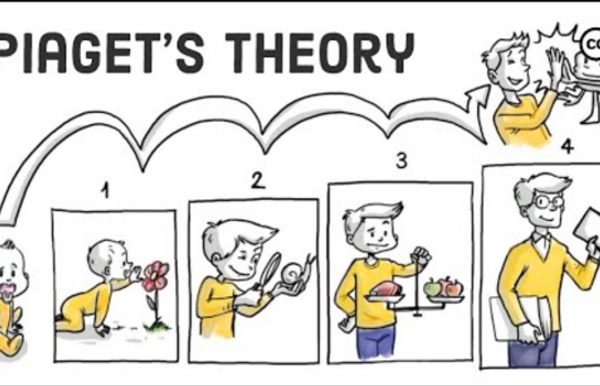



http://www.youtube.com/watch?v=IhcgYgx7aAA
Related: Unit 1 Child development • Psychologie • A LIREUnderstanding the Stages of Child Development Is this child’s development on track? That’s a question parents, pediatricians, educators, and caregivers ask over and over again as children grow and change. To help answer this important question, child development experts have created lots of different charts and checklists that can help you keep track of child development across several key domains: The 8 Stages of Human Development The theory of psychosocial development created by Erik Erikson is one of the best-known personality theories. The theory differs from many others in that it addresses development across the entire lifespan, from birth through death.1 At each stage, the individual deals with a conflict that serves as a turning point in development. When the conflict is resolved successfully, the person is able to develop the psychosocial quality associated with that particular stage of development.
Attachment Theory Attachment Theory By Saul McLeod, updated Feb 05, 2017 Attachment is a deep and enduring emotional bond that connects one person to another across time and space (Ainsworth, 1973; Bowlby, 1969). Attachment does not have to be reciprocal. A Parent's Guide to Surviving the Teen Years You've lived through 2 a.m. feedings, toddler temper tantrums, and the back-to-school blues. So why is the word "teenager" causing you so much worry? When you consider that the teen years are a period of intense growth, not only physically but emotionally and intellectually, it's understandable that it's a time of confusion and upheaval for many families. Despite some adults' negative perceptions about teens, they are often energetic, thoughtful, and idealistic, with a deep interest in what's fair and right.
What is the Purpose of Child Observation? - SafetyCulture What is Child Observation? Child Observation is the method of watching, listening, asking questions, documenting, and analyzing the observed words and actions of children as they interact with their surroundings and other people. Proper observation in childcare is crucial in helping educators and parents address the needs of early childhood development.
Supportive parenting and teenagers - ReachOut Parents Despite wanting to be a supportive parent to your child, you may feel like you’ve just had the door closed in your face and you’ve got it all wrong. Your relationship will be changing and starting to become more equal as they grow up and you spend more time apart. This doesn’t mean you can’t stay connected and provide the support they need as they go through this process of becoming a whole new person, an adult. This can help if you: want to understand why your child needs you to be supportive want to learn more about ways to support your child through their teenage years. How Can We Help Kids With Transitions? Many children struggle with transitions, which are common triggers for behaviors that range from annoying (whining, stalling) to upsetting (tantrums and meltdowns). There are many ways parents and teachers can help kids have an easier time with transitions — and be able to behave better—but it may take a little experimentation to find out what clicks with each particular child. These tools are useful to help kids of all stripes with transitions. But for kids with ADHD, anxiety, autism, or sensory processing, this kind of scaffolding is particularly crucial and can make the difference between a good day and a bad one. Over a period of time it can help pave the way for success. Create routines: If a child “doesn’t want to transition because they like consistency and routine and structure,” says Michael Rosenthal, a clinical neuropsychologist, “then start by building in consistency and routine and structure into the transition process itself.”
What Adolescents Really Need from Parents As a parent of adolescents, I’ve often worried about their health and happiness. They seem to be under a lot of social and academic pressure, suggesting they need more guidance from me to help them get through. But how can I support their independence and autonomy while making sure they don’t fall through the cracks or become depressed or anxious? To find out more about how parents can best help their budding teenagers, I spoke with Ron Dahl, a neuroscientist and professor of human health and development at the University of California, Berkeley. Dahl, one of the leading experts on adolescent development, has spent years studying depression, anxiety, and sleep disorders in adolescence, using intervention studies and, more recently, fMRI technology to increase our understanding of what’s going on.
Identity Development Theory Identity Development Theory A well-developed identity is comprised of goals, values, and beliefs to which a person is committed. It is the awareness of the consistency in self over time, the recognition of this consistency by others (Erikson, 1980). The process of identity development is both an individual and social phenomenon (Adams & Marshall, 1996). Simplified Identity Formation Theory — Chicks Dig Science Welcome to theory corner! Today’s blog post is addresses identity theory in the context of science motivation. Identity, in the psychosocial sense, is the means by which individuals comprehend themselves to be unique and discrete from others but also connected to others through social affiliations. Identity is a balancing act between distinctiveness and affiliation resting on a sense of continuity, or personal narrative.. Erik Erikson (born 1902) was a guy who understood what it is to have identity issues.